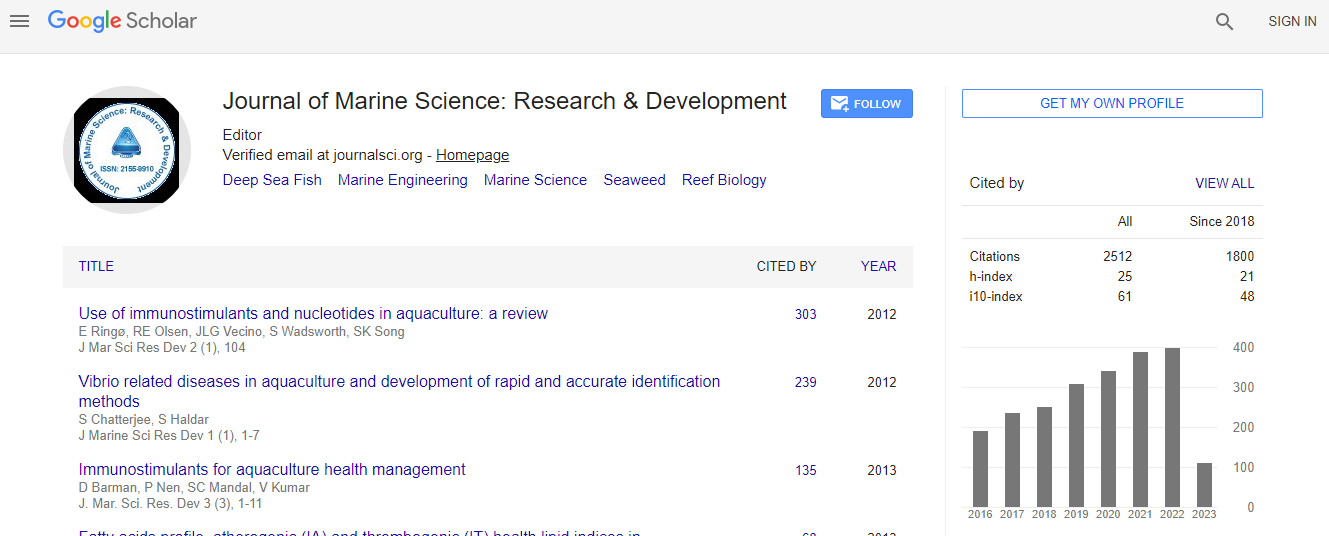Our Group organises 3000+ Global Conferenceseries Events every year across USA, Europe & Asia with support from 1000 more scientific Societies and Publishes 700+ Open Access Journals which contains over 50000 eminent personalities, reputed scientists as editorial board members.
Open Access Journals gaining more Readers and Citations
700 Journals and 15,000,000 Readers Each Journal is getting 25,000+ Readers
Google Scholar citation report
Citations : 3189
Indexed In
- CAS Source Index (CASSI)
- Index Copernicus
- Google Scholar
- Sherpa Romeo
- Open J Gate
- Genamics JournalSeek
- Academic Keys
- ResearchBible
- Ulrich's Periodicals Directory
- Electronic Journals Library
- RefSeek
- Directory of Research Journal Indexing (DRJI)
- Hamdard University
- EBSCO A-Z
- OCLC- WorldCat
- Scholarsteer
- SWB online catalog
- Virtual Library of Biology (vifabio)
- Publons
Useful Links
Recommended Journals
Related Subjects
Share This Page
Anomalous occurrence of cretaceous placer deposits: A review
4th International Conference on Oceanography & Marine Biology
Timothy Bata, John Parnell, Stephen Bowden, Nuhu K Samaila and Ahmed I Haruna
University of Aberdeen, UK Abubakar Tafawa Balewa University, Nigeria
Posters & Accepted Abstracts: J Marine Sci Res Dev
Abstract
During the Cretaceous, the CO2 content of the global atmosphere drastically increased in response to volcanism associated with the disintegration of the former continents. This increase in the global atmospheric CO2 level subsequently led to a considerable rise in global temperatures. The interaction among the high levels of atmospheric CO2, extreme global warmth, and humidity witnessed in the Cretaceous implies extreme environmental conditions, which involved a possibly more acidic and chemically destructive atmosphere than at present; these conditions are believed to have favoured widespread deep weathering at that time. Economically important minerals were reworked from their primary sources during these Cretaceous weathering events. The extreme global warmth witnessed in the Cretaceous also caused the melting of most of the polar ice caps, resulting in the expansion of the volume of Cretaceous seawaters, which subsequently led to a significant rise in the global sea level. Extensive palaeo-seaways played a vital role in transporting and depositing the huge volume of sediments generated during the Cretaceous weathering events, which included economically important minerals (e.g., gold, diamond, and platinum). These mineral deposits are now preserved in Cretaceous sands as placer deposits. Three categories of Cretaceous placer deposits can be distinguished: those occurring in Cretaceous sands resting unconformably on the Precambrian basement, those occurring in Cretaceous sands resting unconformably on the Palaeozoic rocks, and those occurring in Cretaceous sands that unconformably overlay Mesozoic strata.Biography
Timothy Bata is working with Department of Geology and Petroleum Geology, University of Aberdeen, Aberdeen, AB24 3U, U.K and collaborated his research work with Department of Applied Geology, Abubakar Tafawa Balewa University, Bauchi, Nigeria.
Email: timothybata@abdn.ac.uk

 Spanish
Spanish  Chinese
Chinese  Russian
Russian  German
German  French
French  Japanese
Japanese  Portuguese
Portuguese  Hindi
Hindi 